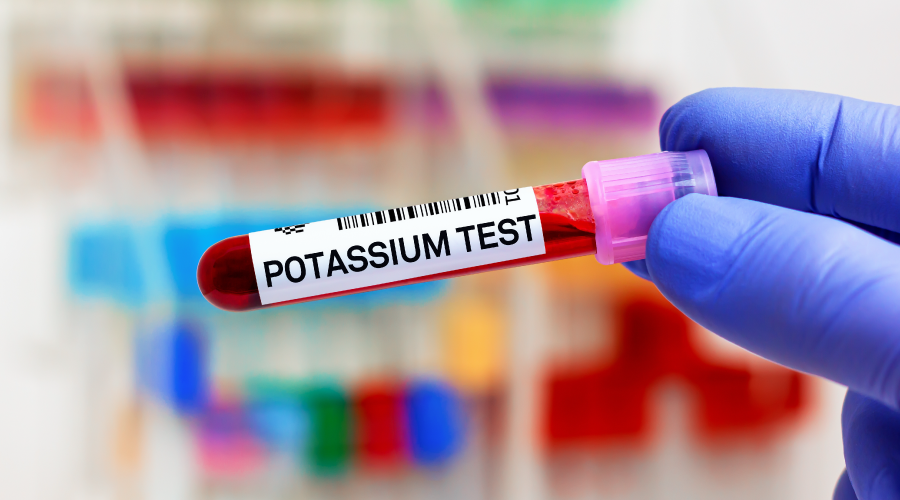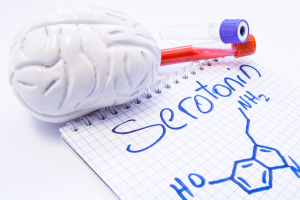

The human body requires a balance of several nutrients in order to function efficiently. While we are mostly focused on macronutrients like protein and carbohydrates, micronutrients like potassium are usually left out. Even though they are needed in small amounts, vitamin and mineral deficiencies can lead to several issues. Potassium deficiency, also known as hypokalemia, is the leading cause for health complications and must be managed at the earliest.
What is Potassium and Why is It Important?
Potassium is a type of essential mineral. This means that the body cannot produce it by itself. The only way to ensure optimal potassium levels in the body is to consume foods like apricots, melons, and bananas that are rich in it. It is responsible for many functions in the body that can be severely disrupted because of a lack of potassium in body:
1. Regulating Fluid Balance
60% of the human body is made of water. Of this, about 40% is inside the cells and is called intercellular fluid. The rest is found in between cells, in the blood, and in spinal fluid – this is called extracellular fluid. The balance between these two types of fluids is maintained by minerals that act as electrolytes, particularly sodium and potassium.
Potassium deficiency is dangerous as it is the primary electrolyte in the intracellular fluid. In simple terms, potassium is responsible for the cell’s ability to retain water. Outside the cells, the primary electrolyte is sodium.
For the body to function normally, the amount of electrolytes should be in a balanced state, inside and outside the cells. Potassium deficiency causes an imbalance which moves the water out of the cell in order to bring the body back to a state of balance. As a result, the cells shrink, leaving you feeling dehydrated.
2. Helping Maintain Nervous System Health
The role of the nervous system is to carry messages back and forth between the body and brain. The messages are delivered as nerve impulses which are necessary for important functions like reflexes, heartbeat, muscle contraction, and a lot more.
These impulses are caused by the movement of sodium into the cells and potassium outside the cells. This causes changes in the cell voltage, activating these impulses. In case of potassium deficiency in body, this function is inefficient.
3. Helping Maintain Healthy Blood Pressure
As mentioned before, the human body seeks balance. When the potassium consumption is adequate, any excessive sodium is naturally eliminated. This is one of the most important factors in maintaining a healthy blood pressure, preventing heart-related issues.
4. Keeping the Bones Healthy
Potassium deficiency, if prolonged, can lead to brittle bones. Studies show that optimum potassium consumption can prevent the elimination of calcium and a higher rate of retention. This ensures that the bone density does not reduce with age and time, causing issues like Osteoporosis.
What Causes Potassium Deficiency?
When the potassium levels in the body are abnormally low, it causes a condition called hypokalaemia. This is when the serum level of potassium is less than 3.5 mmol per L. There are multiple potassium deficiency causes which include both lifestyle-related issues and physiological issues.
Contrary to what most people believe, hypokalemia is rarely caused by your diet. There are other causes for potassium deficiency such as:
- Excessive vomiting
- Malfunction of the adrenal glands or kidney
- Diarrhoea
- Consumption of medication that increase urination
- Excessive consumption of alcohol
- Deficiency in folic acid
- High levels of ketones in the blood, also known as diabetic ketoacidosis
- Consumption of certain antibiotics
- Taking laxatives for a prolonged period of time
- Eating disorders
- Low levels of magnesium
- Certain medicines consumed for asthma
- Chronic kidney disease
- Living in areas with extreme heat
- Being athletic or having a physically demanding job that increases sweating

What are the Common Signs of Potassium Deficiency?
The first step to preventing hypokalemia is knowing the common potassium deficiency symptoms:
1. Irregular Heartbeat
Also known as arrhythmia, this is one of the most common symptoms of potassium deficiency. Tachycardia and bradycardia are two types of heartbeat irregularities. The former is more common when there is a lack of potassium in your body. This is observed often in the elderly who already suffer from underlying heart diseases. In extreme cases, potassium deficiency causes atrial fibrillation which can also cause clots in the heart, putting you at the risk of strokes and heart attacks.
2. Fluctuation in Blood Pressure
Normal potassium levels are necessary to maintain a healthy blood pressure. One of the many potassium deficiency symptoms is extreme fluctuation in blood pressure. You can develop both high and low blood pressure. Individuals who have lower potassium levels in the body are at the risk of developing high blood pressure. It has also been observed that taking potassium supplements can help manage blood pressure effectively.
3. Muscle Pain and Cramps
Muscle contractions are regulated by the nervous system. Lack of potassium can prevent nerve impulses from being generated, causing cramps and muscle pain. Studies have shown that muscle contractions reduce significantly in case of individuals with potassium deficiency. Additionally, low potassium levels lead to dehydration which causes muscle cramps and weakness.
4. Drowsiness and Fatigue
Potassium deficiency in humans is responsible for extreme muscle fatigue. This is the result of improper contractions. Additionally, people also experience constant drowsiness when the potassium level is below the required amount, although the exact cause of this is still to be determined.
5. Digestive Issues
Vomiting and nausea are common potassium deficiency symptoms. This is linked to improper contractions of the muscles in the gastrointestinal tract. Similarly when the motility of the intestine is affected it can cause constipation and also lead to bloating/abdominal distension.
6. Polydipsia and Polyuria
Potassium plays the role of an electrolyte. In case of potassium deficiency, it is common to experience the need to consume more fluid or constant thirst, also known as polydipsia. This also leads to the need to urinate frequently, also known as polyuria. This stresses the kidneys and also reduces the ability to collect and retain urine over time.
7. Poor Concentration
Impaired concentration is the result of several potassium deficiency symptoms like muscle discomfort and weakness. Since the nerve impulses are poorly regulated in case of potassium deficiency, it can have several other effects on your cognitive functions.
8. Respiratory Failure
Extreme potassium deficiency diseases are related to the respiratory system. There are several reasons for this such as an imbalance of acid-base in the body. When the stored potassium in the body drops below the recommended amount, it can impair the function of the muscles especially diaphragm which may cause shortness of breath and severe deficiency may even lead to respiratory failure.
9. Improper Glucose Tolerance
When the potassium level in the body drops, it can affect insulin production as well as insulin sensitivity. It has been observed that hyperglycemia worsens in individuals with diabetes when there is a lack of potassium in body.
You can also be at the risk of potassium deficiency diseases like Irritable Bowel Syndrome, Chronic Diarrhoea, Cushing’s Syndrome, Liddle Syndrome, Fanconi Syndrome, and Gitelman Syndrome.
What are the Complications of Potassium Deficiency?
When potassium deficiency in humans is prolonged, it affects the function of the kidneys. This leads to several complications like excessive ammonia production. Additionally, it can lead to cystic kidney disease.
Potassium deficiency can also cause hepatic encephalopathy which is a disorder of the nervous system caused by liver issues. In the case of individuals who suffer from this condition, the symptoms worsen.
The rate of mortality and morbidity increases in patients with chronic heart and kidney diseases.
How Can It be Treated?
If you notice any of the above symptoms of potassium deficiency, it is best to consult a doctor before taking any supplements or medicines.
The first step is diagnosis which includes:
- A medical history of the patient
- A urine test
- Blood pressure check
In case of arrhythmia, an electrocardiogram may also be recommended. Potassium deficiency is a serious condition and therefore, doctors may recommend additional tests to rule out any other health issues as a result of it.
There are many potassium deficiency treatment options like:
- Potassium supplements to include in your diet
- Injection of potassium by IV if the levels are dangerously low, do not improve with supplements or cause complications like arrhythmia
- If potassium deficiency is the result of any other underlying health issues, they are treated to bring the potassium level back to normal
- Taking the individual off medications that lead to frequent urination
Before taking any supplements for potassium deficiency, make sure you consult with your doctor. While low potassium levels are dangerous, excessive build up can also cause issues. This condition of high potassium levels is known as hyperkalemia which can lead to symptoms like chest pain, shortness of breath, heart palpitations, and nausea – quite similar to a deficiency. However, sudden hyperkalemia can be life-threatening.

Conclusion
Prevention is the best cure for potassium deficiency. Although deficiencies related to the diet are rare with potassium, it is a good idea to include potassium-rich foods in your diet. Some of the best sources of potassium are bananas, beans, beet greens, broccoli, dry fruits, yoghurt, nuts like almonds and cashews, avocado, chicken, coconut water, and salmon.
You can also include beverages that are high in citric acid in your diet as they are normally rich in potassium too. This includes orange juice, cherry juice, or lime juice.
Frequently Asked Questions About Potassium Deficiency
Q. What is likely to happen in potassium deficiency?
Potassium deficiency leads to several symptoms such as muscle fatigue, dehydration, cramps, breathing issues, and digestive issues.
Q. What do we need to remember when it comes to potassium intake?
Before you take any potassium supplement or medication, you must be sure of the dosage that you need to manage the deficiency. You must also be aware of the effect it may have on any medication that you are consuming, existing allergies, and health issues.




